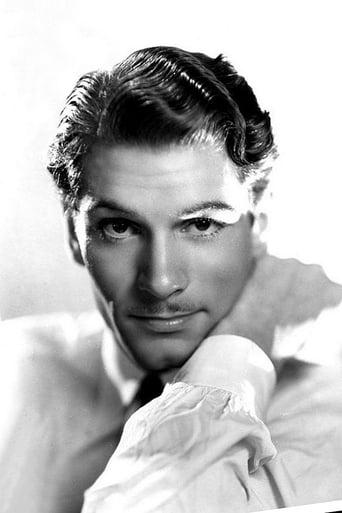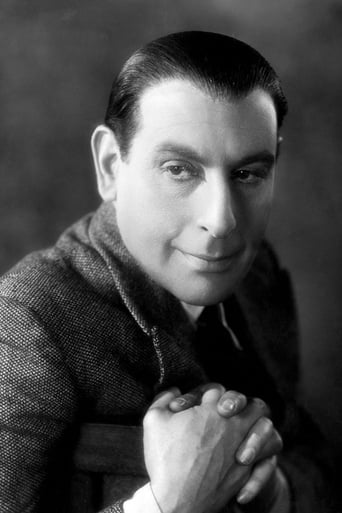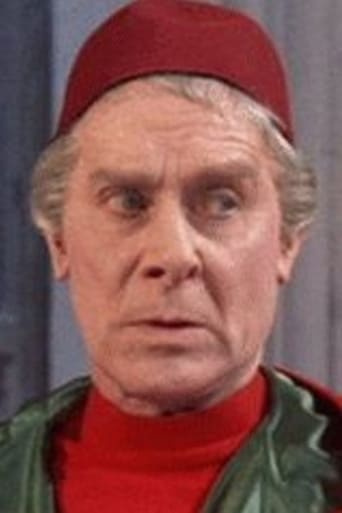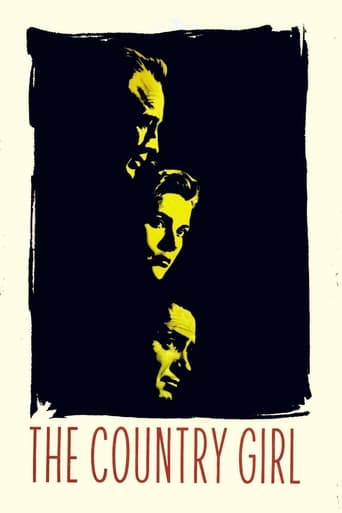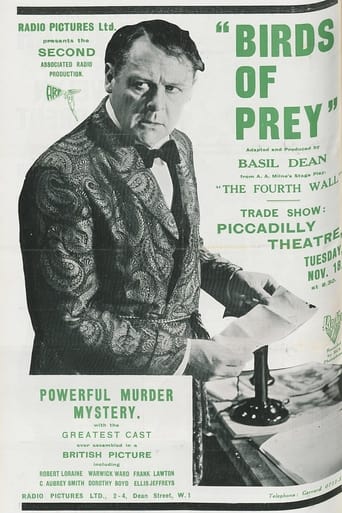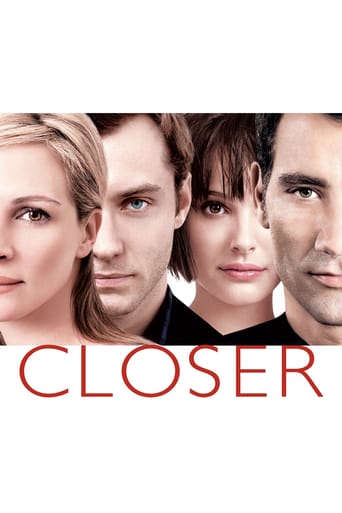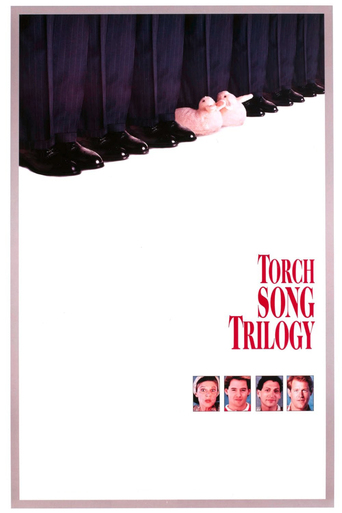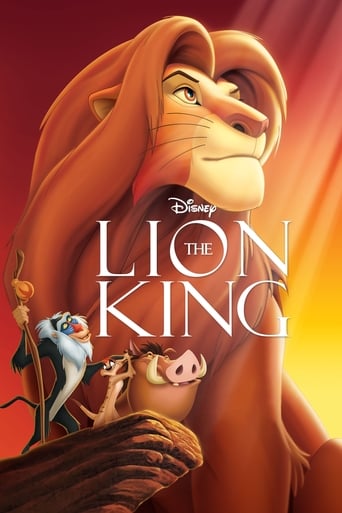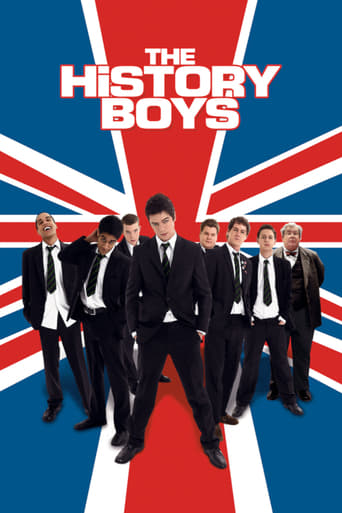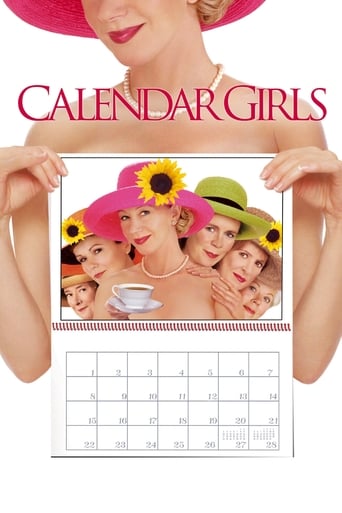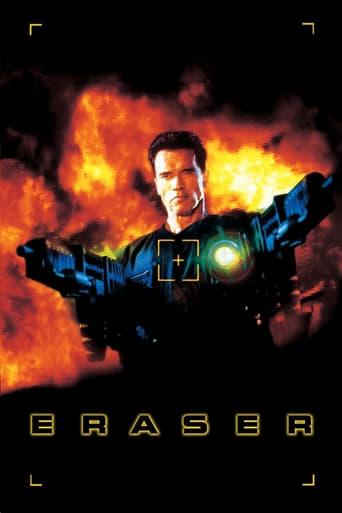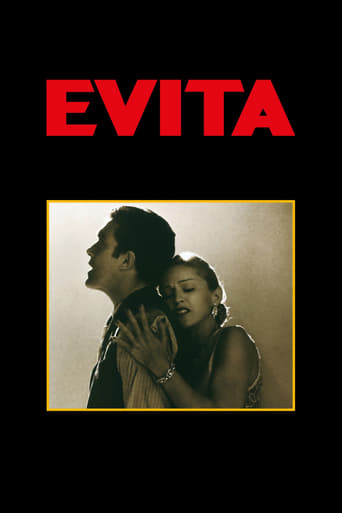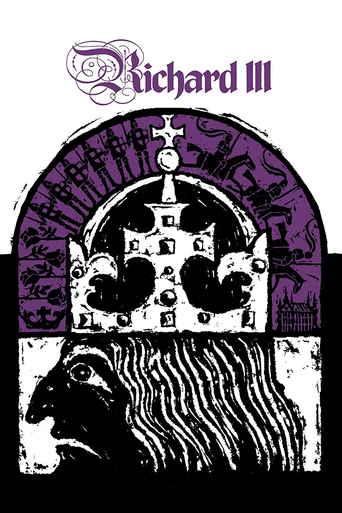
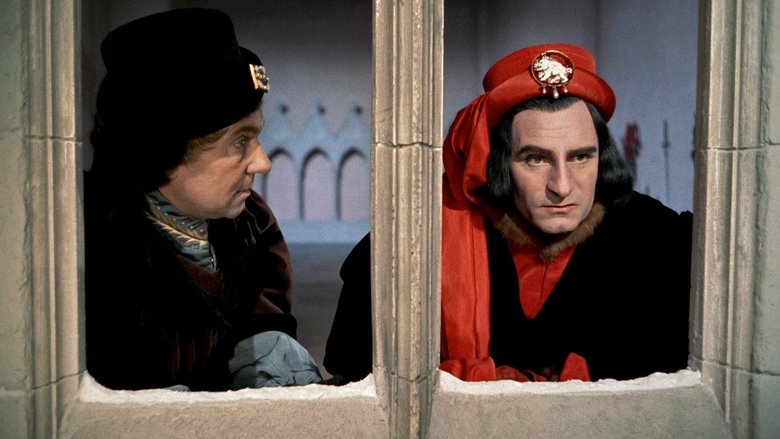
Richard III (1956)
Having helped his brother King Edward IV take the throne of England, the jealous hunchback Richard, Duke of Gloucester, plots to seize power for himself. Masterfully deceiving and plotting against nearly everyone in the royal court, including his eventual wife, Lady Anne, and his brother George, Duke of Clarence, Richard orchestrates a bloody rise to power before finding all his gains jeopardized by those he betrayed.
Watch Trailer
Cast


Similar titles
Reviews
Of the three Shakespeare plays that Laurence Olivier directed and starred in, Richard III is my favourite, though I think both Henry V (1944) and Hamlet (1948) are more filmic and wide-reaching visually. Richard III is more stagy, more theatrical. This is not necessarily a bad thing, for it captures probably one of the finest, most delicious performances ever in a context that respects its theatrical heritage (Olivier famously played Richard on stage earlier), and there is something about the very construction of the play that is very theatrical – essentially it is a series of small dramas or set pieces: scenes that in themselves are works of art, and beautifully crafted that way by Shakespeare. The staginess works best when Olivier speaks directly to us, because then he is using an unconventional film device (actors don't normally talk to the camera) to improve upon a common theatrical device, creating a bond between role and audience. That this is not employed throughout the play is as much Shakespeare's fault as Olivier's, because it is written that way –we get no direct address from Richard in the crucial demise at the battle, and are thus relegated back to being observers rather than "confidents".Upon re-watching it, I was struck by how much what seeing was itself an historical document –of a style of acting and staging that perhaps to us now seems dated, but which at the time was perfectly relevant and true. When diction counted for something and clarity of expression and utterance was all important. Some of the performances come across as more dated than others, perhaps because of their shameless heightened theatricality. This is particularly true of some of lesser characters whose have no star appeal to buoy them up and are dependent merely upon their craft. Yet someone like Ralph Richardson is such an interesting screen personality that his performance –like that of Olivier's– remains fresh and vivid. Michael Gough does wonders with his small part, and Claire Bloom is marvellous –the scene in which her character is wooed by Richard is one of my favourite in both the film and in all of Shakespeare.People have remarked upon the unevenness of the final act, with a sunny Spanish landscape so clearly standing in for soggy England that it distracts our attention away from the narrative; the theatricality is gone and we are suddenly made of this being a film location. The way this necessary shift from studio to outdoors is handled is much more deftly achieved in Olivier's earlier "Henry V", which also has a more satisfying battle scene, but that was written more precisely too; the battle scene in Shakespeare's Richard III only has a few lines and few directions so any film version will have to expand upon these. I think in this case there must have been many logistic difficulties with the location filming because this section of the film is sadly not on par with what has come before.Yet, though these points may seem somewhat negative, I am merely pointing things that I feel could have been better. They do not affect my enjoyment of the film, nor my high regard of Olivier as a director and performer. And of all Shakespeare films, this is the one I return to again and again.
The third, last and by far the weakest of the three Shakespearean films directed by Laurence Olivier. I have to admit that, of the Bard's plays with which I am familiar, "Richard III" is my least favourite. It largely lacks the subtlety, strong characters, superlative characterisation, wonderful exploration of themes and beautiful language that define his later plays, particularly "Macbeth" and "Hamlet". That said, the play is far more subtle than the film. I wish that Olivier had made "Macbeth", which would have starred himself and his wife Vivien Leigh, instead.As both an actor and a director, Olivier failed to live up to the high standards that he set for himself in both "Henry V" and "Hamlet". His performance as the title character is too over the top, too obviously villainous, though he is very good in the quieter moments. The fake nose that he wears is unintentionally comical. This is the first time that I've ever been disappointed with one of Olivier's performances, though he is still one of my three favourite actors (the other two being Christopher Lee and Don Ameche). In contrast to the first two films, his direction is pedestrian. It feels like a filmed stage play rather than the film adaptation of one. It looks dull. This is particularly disappointing after the beautiful, vibrant Technicolor of "Henry V" and the even better black and white cinematography of "Hamlet". The Bosworth Field scenes are the best looking ones in the film but still fall far short of those films. At 2 hours and 38 minutes, it's far too long and not very well paced.Unfortunately, it seemed that Olivier set the tone for much of the acting in the film. Claire Bloom (who later matured into a very good actress) and Cedric Hardwicke both devour the scenery as the Lady Anne and King Edward IV respectively. I wish that Olivier had cast either Jean Simmons (who played Ophelia in "Hamlet") or Vivien Leigh as Anne. Ralph Richardson is just dull as the Duke of Buckingham. Olivier had considered casting Orson Welles as Buckingham and I wish that he had. The best actors in the film are the only ones who give consistently subtle performances such as Andrew Cruickshank as Brackenbury, Alec Clunes (Martin's dad) as Lord Hastings, Laurence Naismith as Lord Stanley, Norman Wooland (who previously played Horatio in "Hamlet") as Sir William Catesby, Stanley Baker as the soon to be Henry VII and the great John Gielgud as the Duke of Clarence. It also has many appearances from great characters actors such as Michael Gough, Michael Ripper, George Woodbridge, Patrick Troughton (who, unlike in "Hamlet", actually has some lines), Esmond Knight, John Laurie and Russell Thorndike. Knight, Laurie and Thorndike are the only actors other than Olivier himself to appear in all three of his Shakespearean films while Knight and the latter sister's Sybil Thorndike appeared in his next film "The Prince and the Showgirl".
Richard III is a wonderful film. I love the play too, it is not my favourite of Shakespeare's plays but it does have some memorable scenes and lines and Richard III himself is a character you are unlikely to forget. This 1955 film is for me one of the Shakespeare films ever made. Why? Because it does have some wonderful production values. The cinematography is marvellous to look at and the scenery and costumes are impeccable. Sir William Walton's score is also superb, I am becoming much more receptive to Walton's music and the music here is a big reason why. The story is compelling and the dialogue and direction are wonderful.The cast give it their all. John Gielgud is especially wonderful and very memorable as Clarence, but Laurence Olivier is absolutely brilliant and gives one of his best and most charismatic performances ever here. Overall, a fantastic film. 10/10 Bethany Cox
Just before he meets his gruesome death, RICHARD III utters those immortal Shakespearean lines--and, as delivered by LAURENCE OLIVIER, they are spoken in a highly melodramatic manner--as is most of the other prose whenever someone has a "big" scene to play.But Olivier gives most of the big moments to himself--and he does them with great finesse and dramatic flair. Still, I think his Richard could have been even more threatening than he managed to be (I'm thinking of Basil Rathbone in THE TOWER OF London). Likewise, RALPH RICHARDSON gives a sly look or two while they're plotting to eliminate candidates for the throne, but never seems to be evil enough to make his part seem believable. He almost seems like an innocent victim of Richard's machinations at times.CLAIRE BLOOM is lovely as Anne, but her sudden switch from mourning widow who spits at Richard to a woman who listens calmly to his loving talk and accepts an engagement ring is slightly ridiculous.The British cast is uniformly excellent, as always in these Shakespearean things, and JOHN GIELGUD is especially convincing as the ill-fate Clarence who gets drowned in a vat of wine.The killing of the two boys in the Tower could have been handled with more high drama than it is, but all the highly dramatic moments seem to go to Olivier only.Best acting job in the cast is done by ALEC CLUNES as Lord of Hastings, the only actor in the whole show who knows how to underplay effectively rather deliver bombastic shouts. CEDRIC HARDWICKE chews quite a bit of scenery in his death scene.William Alton's music is quite impressive, as is the color photography, vivid and affording many striking visuals of interiors and exteriors.The device of Richard speaking asides to the camera is a bit overused at times and is a bit distracting until the viewer gets used to it.Summing up: A good film, but not a great one--could have been so much better.


